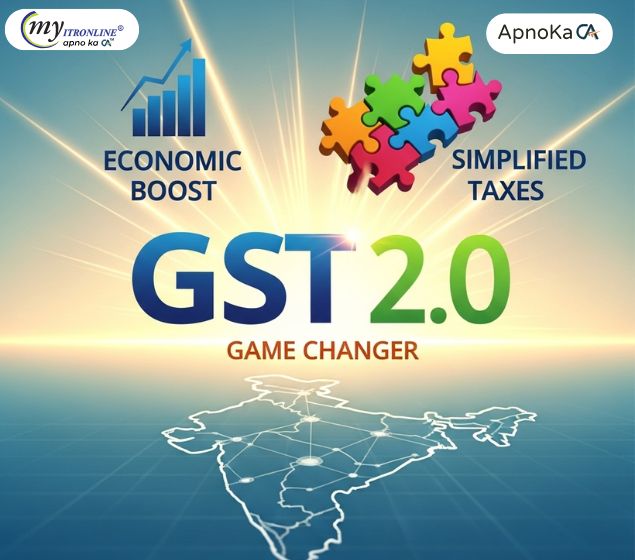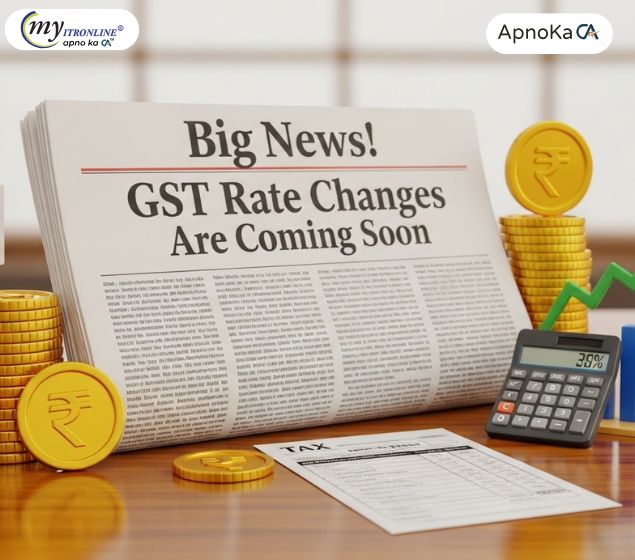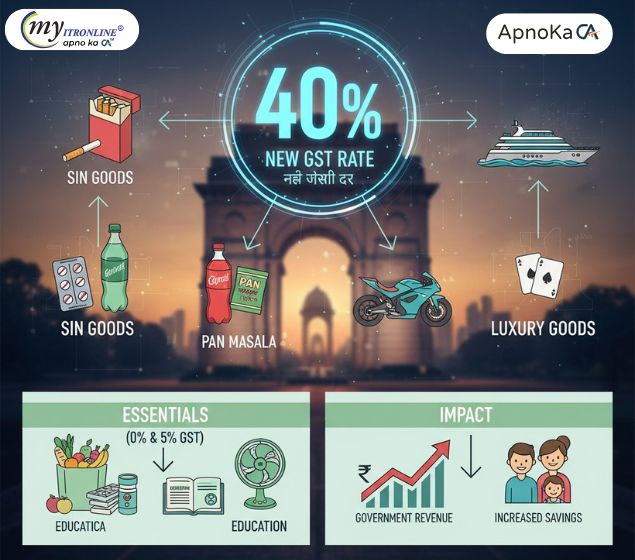# indianeconomy
12 posts in `indianeconomy` tag

GST 2.0: A Game Changer for India? Simplified Taxes & Economic Boost
This blog post provides a comprehensive overview of India's GST 2.0, implemented on September 22, 2025. It details the key features, including the reduction of tax slabs to 5% and 18% (with a new 40% for luxury/sin goods), lower taxes on essential goods, durables, and automobiles, and increased prices for luxury items. The article identifies beneficiaries like everyday households, the middle class, farmers, healthcare consumers, and MSMEs. It also addresses potential challenges such as revenue shortfall, price pass-through issues, and transition headaches for businesses. Finally, it outlines expected economic ripples and crucial factors to monitor for the reform's success, concluding that GST 2.0 is a bold step towards simplifying life for millions. An appendix with sample MRP comparisons is also included.

Big News! GST Rate Changes Are Coming Soon
This blog post announces significant changes to Goods and Services Tax (GST) rates in India, set to become effective from September 22, 2025, as per Notification No. 09/2025 – Central Tax (Rate). It provides a clear, simplified table comparing old and new rates for categories like household essentials, packaged food, luxury goods, hospitality, travel, professional consultancy, and IT services. The post highlights the implications for businesses (updating systems for compliance) and consumers (potential price changes), emphasizing the government's aim for clarity and easier compliance. It concludes by advising consultation with tax professionals for specific sector-related queries.

Goods & Services Now Under 40% GST Slab, Effective from 22 September 2025
India is set to implement GST 2.0 from September 22, 2025, introducing a new 40% GST rate for "sin" and luxury goods. This reform simplifies the existing tax structure, lowers GST on essentials, and aims to balance public health with revenue generation. The move will benefit households with reduced costs on necessities, while consumers and industries dealing with luxury and harmful products will face higher taxes.GST 2.0: India Introduces New 40% Tax Slab for Luxury & Sin Goods

States Push for Tough Steps to Stop Profiteering from GST Cuts
The GST Council is set to meet on September 3-4 to review GST 2.0 reforms. States want strict rules to prevent profiteering so that GST rate cuts actually benefit consumers. Key proposals include a temporary anti-profiteering law, consumer complaint platforms, and tighter monitoring of sensitive sectors. Businesses, however, warn about compliance costs and pricing disruptions.

CBDT Simplifies Tax Rules for IFSC Funds: A Major Win for Investors
This blog post breaks down the recent significant amendment made by the CBDT to Rule 21AIA of the Income Tax Rules. It details the removal of sub-rule (4), which previously imposed additional compliance burdens on "specified funds" like retail schemes and ETFs in the IFSC. The post explains how this change aligns tax laws with IFSCA regulations, effectively eliminating dual regulation. The primary impact is simplified compliance, reduced regulatory overlap, and a more attractive investment environment in India's IFSC, ultimately fostering growth in financial hubs like GIFT City.
.jpg)
Goodbye 1961, Hello 2025: India's New Income Tax Act Explained in Simple Terms
This blog post details India's landmark decision to replace the sixty-year-old Income-tax Act, 1961, with the new, simplified Income-tax Act, 2025, which will be effective from April 1, 2026. It breaks down the key changes in simple terms, explaining the reduction in legal complexity, the introduction of a unified "Tax Year," clearer definitions for digital assets, and the move towards faceless, technology-driven tax processes. The post highlights how these changes aim to create a more transparent, efficient, and taxpayer-friendly direct tax system for individuals and businesses across the country.
.jpg)
AY 2025-26 ITR Filings Cross 3.29 Crore; Over 1.13 Crore Already Processed
Despite the ITR filing deadline for AY 2025-26 being extended to September 15, over 3.29 crore returns have already been filed by mid-August, with 1.13 crore processed. This highlights growing tax compliance and the Income Tax Department's processing efficiency.

How to Access Your PF When You're Unemployed: A Step-by-Step Guide.
This blog post serves as a comprehensive yet easy-to-understand guide for individuals in India facing unemployment and considering Provident Fund (PF) withdrawal. It clearly outlines the two main withdrawal options based on the duration of unemployment (75% after 1 month, 100% after 2 months) and provides a step-by-step walkthrough of the online application process via the EPFO portal. The article meticulously details essential prerequisites like active UAN and updated KYC (Aadhaar, PAN, Bank) and critically explains the tax implications of PF withdrawals, especially for those with less than five years of continuous service. It also covers common reasons for claim rejections and explores alternative financial strategies to consider before tapping into PF. The tone is empathetic and supportive, aiming to empower readers with the knowledge needed to manage their finances during a challenging period.

Official Clarification: UPI Transactions Above 2,000 Remain GST-Free
The Indian government affirms there is no GST on UPI transactions exceeding 2,000. This post clarifies that the confusion arose from NPCI's March 2023 introduction of interchange fees (up to 1.1%) specifically for merchant payments over ₹2,000 made via PPI wallets; this fee is not GST and isn't paid by customers. Standard bank-to-bank UPI remains free due to the MDR waiver. The government actively supports UPI growth through incentive schemes.

What's New in GST Registration? Breakdown of the April 2025 CBIC Circular
This blog post details the updated GST registration guidelines issued by the CBIC on April 17, 2025. It explains the challenges faced by businesses, outlines the typical solutions introduced (like risk-based approaches, standardized procedures, and clearer rules for verification), discusses the anticipated benefits such as faster processing and reduced compliance burden, and advises businesses on navigating the new regulations effectively. The goal is to clarify how these changes aim to simplify the process and reduce harassment, thereby improving the ease of doing business in India.
.jpg)
Finance Bill 2025 An explanation of the main points and tax reforms
Key tax and financial reforms that affect people, companies, and the economy are included in the Finance Bill 2025, which was issued together with the Union Budget. It provides clarification on crypto taxation, simplified GST, lowered corporate taxes, and updated income tax slabs.
.jpg)
New Tax Slabs in Budget 2025: Comprehensive Overview and Analysis
The most significant adjustment to income tax slabs brought about by the Union Budget 2025 was the exemption of income up to ₹12 lakhs from taxes. Additional changes include a higher standard deduction of ₹75,000 and lower tax rates for those making between ₹8 lakhs and ₹24 lakhs. The goals of these measures are to streamline the tax filing process, promote savings and investments, and give middle-class taxpayers financial relief. The new tax system and its effects on people and the economy as a whole are covered in this blog.
